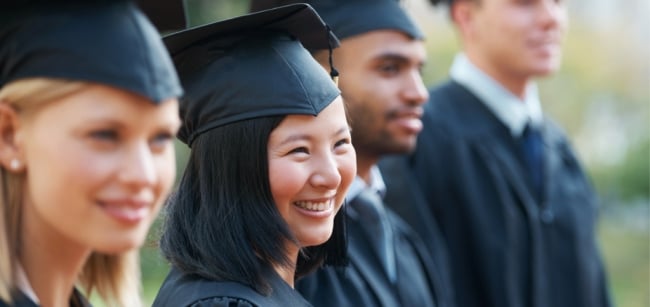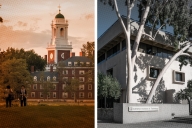You have /5 articles left.
Sign up for a free account or log in.

iStock
For months now, the lawsuit against Harvard University over its admissions practices has focused on the idea that affirmative action may be limiting opportunities for Asian Americans. Remove consideration of race, the plaintiffs argue, and Asian Americans will prosper.
New research, not focused on Harvard's practices, offers a different perspective on that idea. The research looks at what happens to Asian Americans, compared to other groups, in terms of graduation and employment. Graduation is a big success, the research finds. Asian Americans, including those who attend the most prestigious colleges in the country, are graduating at rates above those of all other racial and ethnic groups. This is true of Chinese, Indians, Filipinos, Vietnamese and Koreans -- the groups that make up 83 percent of the Asian American population. And the separate findings of success for each of those groups are important in light of criticism that much research on Asian Americans is not disaggregated. All of these groups are twice as likely as are white people to have college degrees, and Chinese are six times as likely.
But the picture changes dramatically when employment outcomes are considered. Those from Indian and Korean families are no more likely than their white counterparts to be in a professional or managerial position. Those from Vietnamese or Filipino families are less likely to have such positions than are white people. The only Asian American group to maintain its educational outcomes in employment is Chinese Americans.
The research will soon appear in the journal Ethnic and Racial Studies. A summary by two of the authors was published as an essay in the Los Angeles Times. In the essay, the authors argue that these data should make Asian Americans think twice -- regardless of how Harvard may admit students -- before assuming that affirmative action is bad for them.
"This combination of educational achievement and persistent limits in the workplace have led social scientists to speculate that Asian Americans face a 'bamboo ceiling,' an invisible barrier akin to the 'glass ceiling' that women face," they wrote. "Affirmative action has helped women, especially white women, begin to break through the glass ceiling. It can do the same for Asian Americans."
The authors of the essay -- Jennifer Lee, a professor of sociology at Columbia University, and Van C. Tran, an assistant professor of sociology at Columbia -- wrote that they were the beneficiaries of affirmative action.
"Our appointments were the result, in part, of hiring initiatives designed to diversify faculty at elite universities. Elite universities, including Ivy League schools, still have predominantly white and male faculty, despite student populations that are more than one-half female and one-quarter Asian American," Lee and Tran wrote. "Asian American students who oppose affirmative action because they believe it hurts them will face a rude awakening when they leave college. Once they enter the workplace, they will find that college degrees -- even ones from elite universities -- do not open as many doors for them as for their white peers."
Lee said that in the professional world, "a new set of biases and preferences come into play that privilege native-born whites with a particular cultural pedigree and the right type of cultural capital." She said these patterns raise questions both about bias and also how leadership is defined by those doing hiring and promotion.
Stereotypes based on personality traits (real or based on stereotypes) are key to the Harvard case and some of the new research. At Harvard, documents in the case show that many more Asian Americans would be admitted than are today if decisions were based only on grades and test scores. Reviews of other factors appear to lessen the chances of Asian Americans.
Tran said via email that there are some issues that may overlap in the bias some believe Asian Americans face in admissions and that his research documents in employment.
"Biases (if any) against Asian Americans in university admissions are often framed in terms of 'not well-rounded enough,' too one-dimensional, lacking in 'diverse interests' and in 'individual personality,'" Tran said. "These are all terms I have heard from my (alum) friends who served as interviewers for admissions to places like Harvard, Yale or Cornell, etc. In contrast, some of the anti-Asian bias and disadvantage Asians face in the workplace is often about the lack of social capital, cultural capital, personal connections and homophily in social networks (all of which advantage some applicants or workers, while disadvantag[ing] others)."
When looking at biases that hold Asian Americans back in the workplace, negative stereotypes are at play, he said. Some of them are "hardworking, but not assertive," or "not outgoing" or "lacking in social or leadership skills," he said. "These stereotypes are more harmful in the workplace for professional advancement, promotions," he said.
"In sum, there are some related, but also rather distinct types of biases operating in the educational settings (i.e., admissions) and in the workplace (i.e., hiring and promotion). Drawing such an analogy between the two domains might obscure the different dynamics that operate in these two domains. This is a key finding emerging from our recent research on attainment as well as on affirmative action policy."








